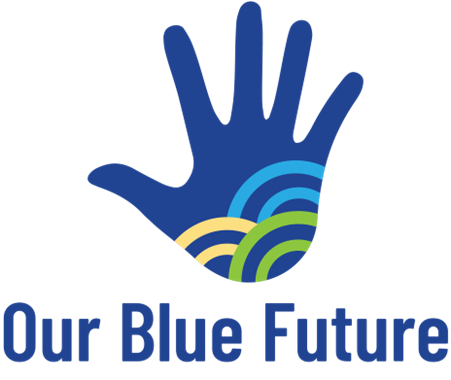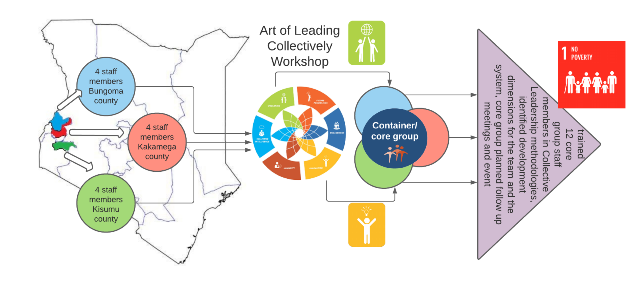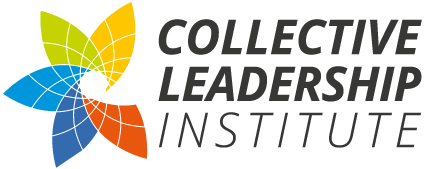The United Nations Office on Drugs and Crime (UNODC) convened 28 law enforcement officers from Angola, Kenya, Mozambique, Namibia and Tanzania in September 2024 in Cape Town, South Africa, for a “Regional Wildlife Conservation: The Art of Stakeholder Collaboration” workshop facilitated by CLI to develop and explore opportunities for regional collaboration to address wildlife crimes.

Project time: 2024
Sector(s): public sector
Main SDG: 15 Life on Land
Stakeholders: 28 law enforcement officers from Angola, Kenya, Mozambique, Namibia and Tanzania
Outcomes: regional initiatives were identified and developed, collaboration across borders was demonstrated, the need for ongoing communication and coordination between the different stakeholders was developed.
CLI Project Managers: Lulekwa Gqiba, Dominic Stucker, Nomvula Dlamini

This CLI project is about supporting the increased production and application of organic fertilizer in Kenya, Uganda, and Tanzania in East Africa, and Burkina Faso, Côte d’Ivoire, and Ghana in West Africa. It is realized in collaboration with and funded by the Water and Energy for Food (WE4F) project implemented by the Deutsche Gesellschaft für Internationale Zusammenarbeit (GIZ) GmbH.
Project time: 2023-2024
Sector(s): private sector, public sector
Main SDG: 12 Responsible Consumption and Production
Stakeholders: entrepreneurs, innovators, policy makers
Outcomes: an event with a series of sessions exploring the organic fertilizer context, as well as the potential of a network of organic fertilizer Innovators is facilitated, a co-creative process among interested Innovators to design key aspects of a possible network for advocacy and peer learning in the region is started, and a feasibility study of a regional Multi-Stakeholder Partnership among public and private sector stakeholders to improve the environment for organic fertilizer innovations is conducted.
CLI Project Managers: Elisabeth Kuehn, Dominic Stucker, Lulekwa Gqiba, Douglas F. Williamson

CLI is one of the Initiating Partners behind “Our Blue Future” (OBF), a multi-stakeholder initiative for an inclusive and sustainable blue economy in the Western Indian Ocean (WIO) region. OBF is an alliance that fosters a diverse network of impact-oriented partners, projects, and champions… to contribute to the common vision of a healthy, prosperous and resilient future for the region’s communities, businesses and natural habitats.
In addition to being an Initiating Partner of OBF, CLI supports the related, participatory development of a regional ocean governance strategy (ROGS) and an information management strategy (IMS).
Project time: 2022-2024
Sector(s): public sector, civil society, private sector
Main SDG: 14 Life below Water
Stakeholders: representatives from public sector, development cooperation, NGOs, and reaseach institutions on ocean governance from 10 Western Indian Ocean countries
Outcomes: CLI initiated the Our Blue Future transformation network together with partners, a website was developed, a culture of collective leadership among members emerged through online workshops, three cluster teams were formed.
CLI Project Managers: Dominic Stucker, Douglas F. Williamson, Lulekwa Gqiba, Mai ElAshmawy

CLI’s Elisabeth Kuehn joined the team from the Danida Fellowship Center (DFC) to co-facilitate a Learning and Inspiration workshop for its alumni coordinators from all over the world. The Danida Fellowship Center supports training, research, and networks in countries prioritized by Danish development cooperation. This includes support to its global alumni from training and research activities.
Project time: 2023
Sector(s): public sector
Main SDG: 17 Partnerships for the Goals
Stakeholders: 26 coordinators of national alumni networks from 11 different countries and three continents
Outcomes: participants explored with the ©Dialogic Change Model how the engagement and impact of their alumni networks could be strengthened, participants defined the added value of meta-collaboration across countries, regions, and continents, commitment and plans for a DFC alumni Community of Practice were created, as well as a strengthened identity as core group of alumni network coordinators.
CLI Project Manager: Elisabeth Kuehn

In October 2021, CLI started the first of a four-part Collective Leadership training series in Senegal. The key actors included the GIZ Partnership Program for Employment and SME Strengthening in Senegal (Invest for Jobs Senegal) which is creating new employment opportunities through strengthening small and medium enterprises in the realms of renewable energy, textile, cosmetics, tourism, and urban development. A network of key actors from private and public sector needed to come together to drive public-private collaboration in those key sectors overall, and implement such cooperation on the ground in selected initiatives
Project time: 2021-2022
Sector(s): public sector, private sector, civil society
Main SDG: 8 Decent Work and Economic Growth
Stakeholders: representatives from public, private and civil society sectors who are involved in leading sectors of the sustainbale economic development in Senegal
Outcomes: Foundation of the network ‘task force DPP Senegal’, with the purpose to continue support and advice for collaboration internally, and expand and advocate for that same approach externally in all of Senegal; a draft theory of change for the network is defined; along-term vision, overall goal, transversal strategies, and a short-term action workplan for the next three months of the network is developed; a core group driving the network’s strategy development and consolidation is defined; committed engagement by the group to continue collaborating across sector boundaries in the mid- and long-term future is generated.
CLI Project Managers: Elisabeth Kuehn, Katharina Maier, Moussa Gueye

Protecting and promoting the right to a healthy environment for children affected by environmental degradation caused by extractive industries was at the core of CLI’s intense three-day, online Training on Multi-Stakeholder Dialogues in July 2021. It was a contribution to the terre des hommes Deutschland e.V.’s project named MAP (Multi Actor Partnership) to promote the right to a healthy environment for children affected by environmental degradation by the extractive industries in Zambia, Zimbabwe and Mozambique.
Project time: 2021
Sector(s): civil society
Main SDG: 3 Good Health and Well-Being
Stakeholders: 17 change agents from four NGOs promoting healthy environments for children in Zambia, Zimbabwe, and Mozambique
Outcome: Each country team co-created a process to engage the most impotant stakeholders with the aim to raise awareness, build alliances, and drive change. New and innovative paths forward have been created for this multi-stakeholder partnership.
CLI Project Managers: Theresa Kuschka, Dominic Stucker

CLI facilitated online academy trainings in collaboration with GIZ Nigeria. The intention of the course series was to support stakeholders from public and private sector institutions from four federal states in establishing a Multi-Stakeholder Dialogue Platform on employment promotion for youth in the technical and vocational education and training (TVET) system. The participants gathered in separate venues, one per state group, organized by GIZ, whereas the CLI trainers joined online via Zoom.
Project time: 2020-2021
Sector(s): public sector, private sector
Main SDG: 8 Decent Work and Economic Growth
Stakeholders: Representatives of public and private sector institutions from four federal states
Outcome: Participants became more familiar with one another, built greater understanding and trust within and between states and sectors; a discussion and planning process was initiated in all state groups on state level dialogue platforms for the TVET system; each state group drew up an action plan for carrying out next steps for initiating these state dialogue.
CLI Project Managers: Lulekwa Gqiba, Stephanie Langsch

This GIZ project aims on increasing youth empowerment and employment, predominantly in the agriculture sector, in Western Kenya. An originally planned workshop for March 2020 in person in Nairobi, was postponed until the end of May, made entirely virtual, and relied on all 12 participants coming from three different provinces. The course was held on the Microsoft Teams platform with CLI facilitators in Germany and Denmark, and participants in Kisumu and Nairobi, Kenya. Over the three-day course, participants learned to use the Collective Leadership Compass and apply it to their individual leadership development, to their collaboration system, and to planning meetings and events to move their process forwards with increased aliveness.
Project time: 2020
Sector(s): public sector
Main SDG: 1 No Poverty
Stakeholders: 12 GIZ staff members from three different provinces in Western Kenya
Outcome: Participants applied the Collective Leadership Compass to their individual leadership development, to their collaboration system, and to planning meetings and events.
CLI Project Manager: Douglas F. Williamson; co-facilitation by Collective Leadership Specialist Jacob Fink Ferdinand


The Multi-Stakeholder Partnership towards Universal Health Coverage through Access to Specialized Services by Malteser International, Amref Health Africa and the Kenya Healthcare Federation aims to improve the availability, deployment and conditions for selected specialised health professionals in Kenya through coordinated structural and collaborative dialogical processes with relevant stakeholders from county to national level coming from ministries, regional bodies, FBOs, professional associations or academia. In preparation for this initiative, CLI conducted a feasibility study and a 3-day kick-off workshop and is now supporting the process through a coaching session.
Project time: 2018
Sector(s): public sector, civil society
Main SDG: 3 Good Health
Stakeholders: Health professionals from ministries, regional bodies, FBOs, professional associations, and academia
Outcome: The feasibility study showed opportunities and challenges for the stakeholder collaboration system, in the kick-off workshop a shared understanding of the partnership was established, the process of implementation was supported.
CLI Project Managers: Sabine Heckmann, Lulekwa Gqiba

The Multi-Stakeholder Partnership for the improvement of food and nutrition security of smallholders and particularly vulnerable groups in four selected programme countries by Welthungerhilfe is part of their Land for Life programme and focuses to design and implement public policies and investment strategies for responsible agricultural investment and land governance in Sierra Leone, Liberia, Burkina Faso, and Ethiopia. During a tailored workshop in Berlin, Germany, CLI supported Welthungerhilfe in its planning phase with a joint creation of understanding and the design of roadmaps for the different multi-stakeholder initiatives.
Project time: 2017-2018
Sector(s): civil society
Main SDG: 2 Zero Hunger
Stakeholders: A core group of 10 staff members of Welthungerhilfe’s Land for Life programme
Outcome: The stakeholders were trained in the Dialogic Change Model, built processes for successful multi-stakeholder-partnerships, launched the partnership in Liberia, included CLI’s Dialogic Change Model in their Civil Society Academy Toolbox.
CLI Project Managers: Dr. Petra Kuenkel, Sabine Heckmann

Limited access to water and water sanitation are two of the core challenges Zambia currently faces. In Lusaka, the country’s capital, 70% of the population doesn’t have proper sanitation infrastructure, which has serious health and economic implications for communities and businesses.
In 2016-2017, CLI worked closely with GIZ’s International Water Stewardship Programme (IWaSP) and local Zambian leaders from across sectors to establish the Lusaka Water Security Initiative (LuWSI) and to work toward a vision of a water secure, healthy, and prosperous city. CLI supported the involved actors by building multi-stakeholder collaboration and dialogue capacity, co-designing the roles and responsibilities of key structures – such as the Steering Board, Technical Working Group, and Secretariat – and co-facilitating their initial meetings.
One capacity building, “Collective Leadership for Water Security: Strengthening water stewardship partnerships for achieving common goals” was organized in nearby Uganda for Zambian actors, plus those from 8 other IWaSP countries.
In cooperation with IWaSP Headquarters in Germany, CLI co-designed and integrated the Collective Leadership Compass into the Water Risk and Action Framework (WRAF), a guide for practitioners for forming and executing water stewardship partnerships. The framework supports individuals, teams and organizations to build vibrant and robust “collaboration ecosystems” that achieve water security goals in diverse contexts.
Project time: 2016-2017
Sector(s): public sector, civil society, private sector
Main SDG: 6 Clean Water and Sanitation
Stakeholders: Local leaders in water management in Luska from all sectors
Outcome: The Lusaka Water Security Initiative was established, structures such as steering board, technical working group, and secretariat were created, the Collective Leadership Compass was integrated into IWaSP’s Water Risk and Action Framework.
CLI Project Managers: Dominic Stucker, Lulekwa Gqiba

Project time: 2014
Sector(s): public sector
Main SDG: 16 Peace, Justice and Strong Institutions
Stakeholders: African Union Commission members, departments of political and social affairs
Outcome: Capacity for fruitful collaboration with key stakeholders war´s built, standards of democracy, elections, and human rights were raised among AU member states.
CLI Project Manager: Andrew Aitken

Project time: 2013-14
Sector(s): private sector, public sector
Main SDG: 8 Decent Work and Economic Growth
Stakeholders: 120 local “champions” in five pilot districts
Outcome: 47 dialogues were held between local businesses and district level officials, dialogues are seen as evidence on how successful the public sector supports the private sector development in their districts.
CLI Project Manager: Adele Wildschut

Members and non-members of the Country Coordinating Mechanism (CCM) were invited to take part in a Stakeholder Dialogues tailor-made course and undertook a detailed stakeholder analysis of the health sector of the Comoros. This helped identify some of the strengths and weaknesses of the different key players, led to intense discussions on roles and responsibilities, and greatly contributed to understanding the context. The tailor-made workshop enabled the group to develop a common understanding of what the CCM is, why it exists, and how each different stakeholder can contribute to its effective operation through proper engagement. This lead-up helped to create a space for dialogue on existing issues, to overcome misunderstandings, and to take joint steps in the fight against malaria, tuberculosis, and HIV/AIDS.
Project time: 2012
Sector(s): public sector
Main SDG: 4 Good Health and Well-Being
Stakeholders: Members and non-members of the Country Coordinating Mechanism (CCM) to fight tuberculosis, AIDS, and malaria
Outcome: The role of CCM was defined, joint next steps were agreed upon, key committees were formed.
CLI Project Manager: Andrew Aitken

Small and medium sized enterprises are an important part of the Senegalese economy, yet current laws and government policies do not create an enabling environment for boosting the prosperity of many small businesses. CLI initiated an engagement process to address this situation by analysing the different viewpoints and including key actors that were previously left out. Eventually, a new sense of common ownership developed around the original aim of the initiative.
Project time: 2011
Sector(s): public sector, private sector
Main SDG: 8 Decent Work and Economic Growth
Stakeholders: Ministries, commercial associations, chambers of commerce, and SMEs
Outcome: All relevant stakeholders were integrated in the process of SME development, a vision shared by all parties was formed, misunderstandings and conflicts were reduced, a common sense and ownership for improving the situations of SMEs were developed.
CLI Project Manager: Kristiane Schaefer

Participants of this tailor-made Stakeholder Dialogues course comprised both GIZ staff in South Africa and their partners from the public sector, civil society, and community-based organisations who were trained to cooperate more effectively to promote the safety of particularly vulnerable population groups in disadvantaged communities. The participants identified a common vision for the GIZ violence Prevention and Safe Public Spaces programme and established the success factors for meaningful stakeholder engagement.
Project time: 2010
Sector(s): public sector, civil society
Main SDG: 16 Peace, Justice and Strong Institutions
Stakeholders: GIZ staff members and their public sector and civil society partners and community-based organisations
Outcome: More effective cooperation to promote the safety of vulnerable groups in disadvantaged communities, a common vision was created, success factors for meaningful stakeholder engagement were created.
CLI Project Manager: Dr. Petra Kuenkel

The purpose of the African Cashew Initiative (ACi) was to strengthen the global competitiveness of cashew production and processing in five pilot countries (Benin, Burkina Faso, Ghana, Mozambique, and Côte d’Ivoire). CLI supported the multi-stakeholder initiative and provided stakeholder engagement strategies on various levels. CLI also assisted the contextual preparation and facilitated strategic stakeholder events that brought together actors from public and private sectors, as well as from international civil society organisations.
Project time: 2009-10
Sector(s): private sector, public sector, civil society
Main SDG: 12 Responsible Consumption and Production
Stakeholders: Key actors along the value chain such as peasants, processing companies, trade companies; in total 240,000 peasants have directly benefited from the project
Outcome: The different partners were aligned around common goals, a management structure was built and regular meetings agreed, implementation activities were aligned and success jointly monitored.
CLI Project Manager: Dr. Petra Kuenkel
